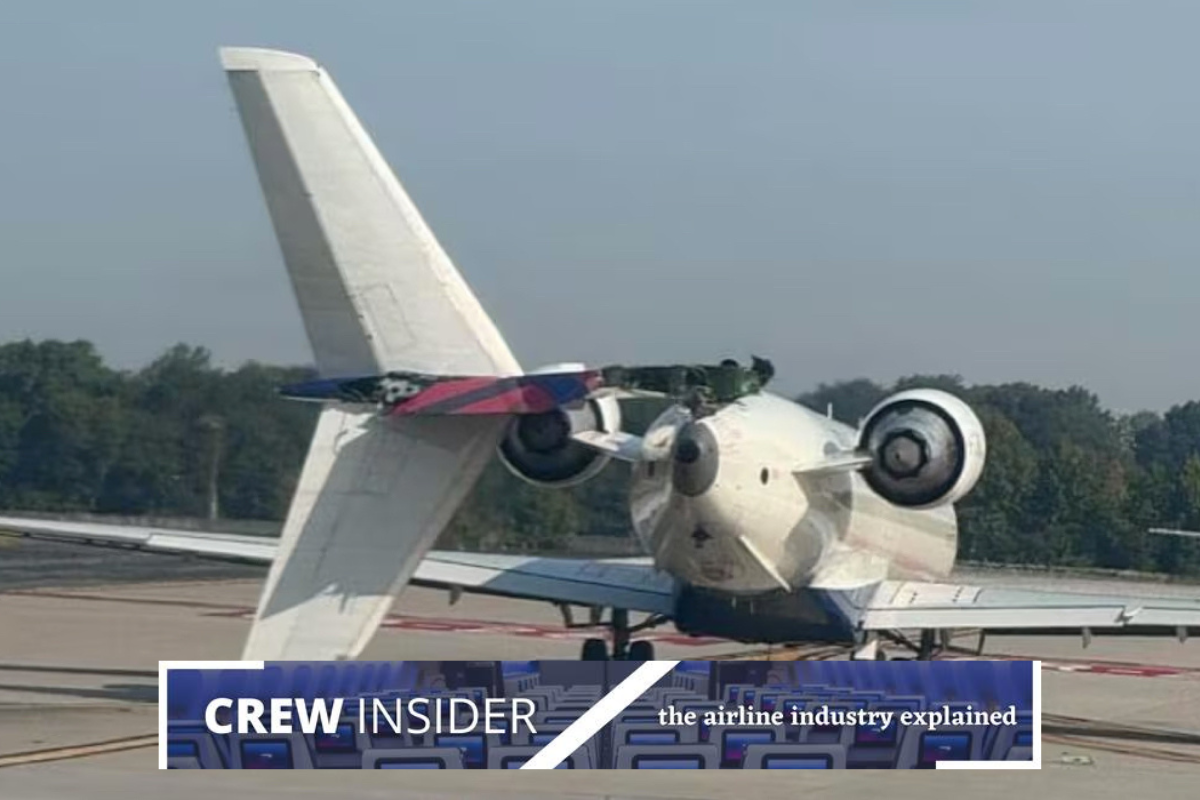
The collision between two Delta Air Lines planes at Atlanta Hartsfield International Airport on Wednesday got us thinking about whether flight attendants still get paid if they are involved in an emergency situation… especially like this one where both planes hadn’t yet departed.
In the United States, flight attendants traditionally don’t start getting paid until the plane has left the gate. They then get paid an hourly rate up to the point the plane arrives at its destination and on top of that they will receive overnight allowances or per diems if they have a layover in their destination.
At Delta, flight attendants also get paid a slightly reduced rate for time spent boarding and deplaning passengers, but most of the money that crew members earn is from time spent in the air.
So what happens when an accident or emergency occurs when the plane hasn’t yet departed. Does the clock simply stop and flight attendants stop earning their hourly ‘flying pay’? Or do airlines have procedures in place to ensure that what one union describes as ‘aviation’s first responders’ are properly compensated for their heroic efforts?
Well, the answer is complicated, and what actually happens can carry from airline to airline and from situation to situation.
On Tuesday, two Delta planes were taxiing for departure. A Delta Connection CRJ-900 was due to depart for a short flight to Layfayette, while a Delta Air Lines Airbus A350 was on an adjacent taxiway as it prepared to takeoff for a long-haul flight to Tokyo Haneda.
As the Airbus A350 passed the much smaller CRJ-900, its right hand wing tip clipped the tail of the regional jet, causing it to topple over. Thankfully, no one was injured but the flights had to be scrapped due to the significant damage caused to both aircraft.
The flight attendants on both planes would have already started to be paid, but would they end up being paid for the entire trip they were due to work?
A spokesperson for Delta reassures us that the carrier does pay crew members for their lost trip, telling us that the airline has “internal policies and processes to ensure that when flight attendants are impacted by an event like this, they are paid appropriately.”
However, some airlines might not be as generous and whether a flight attendant gets paid or not could depend on how senior they are.
For example, a more junior flight attendant who typically works reserve duties might end up losing all the pay for the trip if it got canceled due to an emergency situation. Instead, they would be required to pick up a new trip to make up for any lost wages.
The situation could, however, be very different for senior flight attendants who are often referred to as ‘line holders’ because they have a guaranteed schedule. If their trip was canceled due to an emergency situation then they would be entitled to pay protection and wouldn’t lose out as a result.
Of course, that doesn’t preclude airlines from offering ex gratia payments, and just because a flight attendant is working reserve duties doesn’t necessarily mean that they won’t benefit from pay protection in certain situations.
It’s also worth noting that the level of pay protection or additional payments can very much depend on the level of emergency. For example, an unruly passenger might leave flight attendants out of pocket, whereas the kind of emergency we witnessed on Tuesday is much more likely to activate pay protection procedures.
The rules can vary massively from airline to airline and from country to country and is often very much dependent on exactly what the union has negotiated in the flight attendant contract.
Related
Mateusz Maszczynski honed his skills as an international flight attendant at the most prominent airline in the Middle East and has been flying ever since... most recently for a well known European airline. Matt is passionate about the aviation industry and has become an expert in passenger experience and human-centric stories. Always keeping an ear close to the ground, Matt's industry insights, analysis and news coverage is frequently relied upon by some of the biggest names in journalism.







